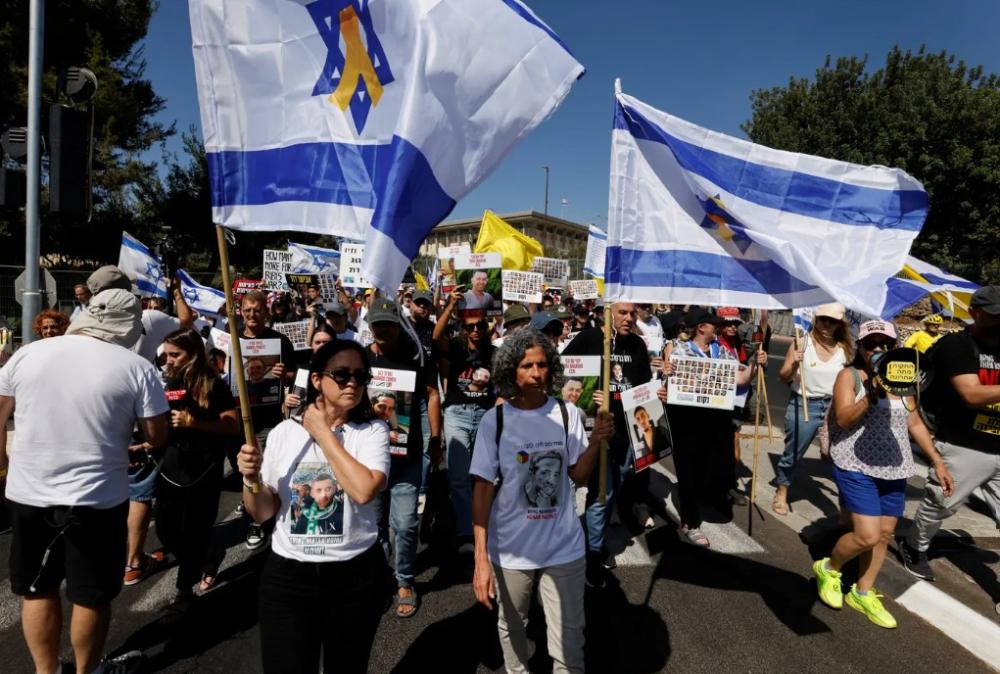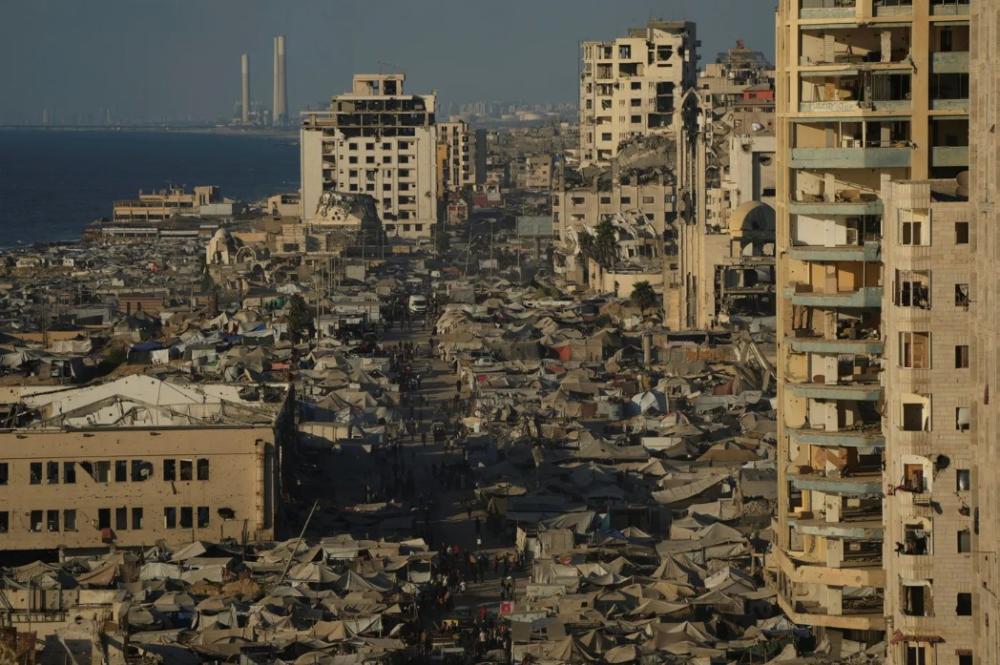Most Israelis, Including on the Right, Back Hostage Deal That Ends Gaza War, Poll Shows
The majority of Israelis, even among the country's right-wing, support a deal that would include an end to the Gaza war, the release of all hostages in Hamas captivity and the withdrawal of IDF troops from the Strip, a poll released by the Israel Democracy Institute shows.
According to the poll, which was conducted between August 24 and 28, 64.5 percent of all Israelis believe that Israel should agree to such a deal, with 62 percent of Jews and 81 percent of Arab respondents indicating they are "certain that Israel should" or "think that Israel should" agree to these terms.
Among left-wing respondents, 92 percent said that Israel should agree to this deal, but even among voters for right-wing parties, support was high. Fifty-two percent of Likud voters said that Israel should sign a deal that includes a hostage release, a cease-fire and Israeli troop withdrawal from Gaza. More than half of United Torah Judaism and Shas voters also support a deal.
Only one party – Religious Zionism, led by Finance Minister Bezalel Smotrich – had less than half of its voters say they would support such an agreement, with 23 percent.

In other polls, including a Channel 12 survey from July, higher rates of respondents said that they support a cease-fire and hostage release deal – up to 74 percent. When asked by Haaretz, researchers from the Israel Democracy Institute said that the discrepancy could be due to the way that the question was asked, noting that their poll included a complete withdrawal of IDF troops from Gaza, a factor others did not. Other polls may also have been conducted solely online without calling respondents by telephone, as the Haredi sector is less likely to use the internet.
More than half of Israelis – 53 percent – also believe that the government is not making every effort to bring the hostages home, the IDI poll found.
In addition, the poll found that most Israelis oppose Jewish settlement in Gaza, with 53 percent of Israeli Jews and 86.5 percent of Arabs saying that the Strip should not be resettled. The institute notes that Haredi respondents were most likely to support the idea: 75 percent of Haredi respondents back Jewish settlement in the Strip, compared to just 21 percent of secular Israelis.
Israelis are split, though, regarding the cabinet's decision to expand the military operations in Gaza, including the plan to reoccupy the Strip. This plan has been denounced by the families of the 48 remaining hostages, who say that broadening the war endangers the living captives and will only make it more difficult to recover the remains of the dead. Forty-nine percent of Israelis – 42.5 percent of Jews and 81.5 percent of Arabs – oppose the measure, while 42 percent of the total sample support it.

Prof. Tamar Hermann of the IDI notes that some of the responses may seem counterintuitive. "There is a substantial share of Israelis who support a hostage deal that involves a full withdrawal from Gaza while also saying they support the expansion of fighting in Gaza," she says. "This is due to the context-specific nature of each question – many Israelis prioritize bringing the hostages home even at a great cost, but if a deal cannot be struck, they support the expansion of operations in Gaza."
As for who should govern Gaza when the war is over, the largest share of Israelis – 44 percent of Jews and 22 percent of Arabs – think that a multinational force should run the Strip. The second-most favored option among Arabs is the Palestinian Authority, and among Jews it is Israel.
The poll was prepared by the Viterbi Family Center for Public Opinion and Policy Research at the Israel Democracy Institute, over the internet and telephone. They polled 600 people over the age of 18 in Hebrew and 150 in Arabic, with a maximum sampling error of plus or minus 3.58 percentage points at a confidence level of 95 percent.
[Linda Dayan is a Haaretz correspondent covering Israeli society, culture and the Jewish world.]


Spread the word